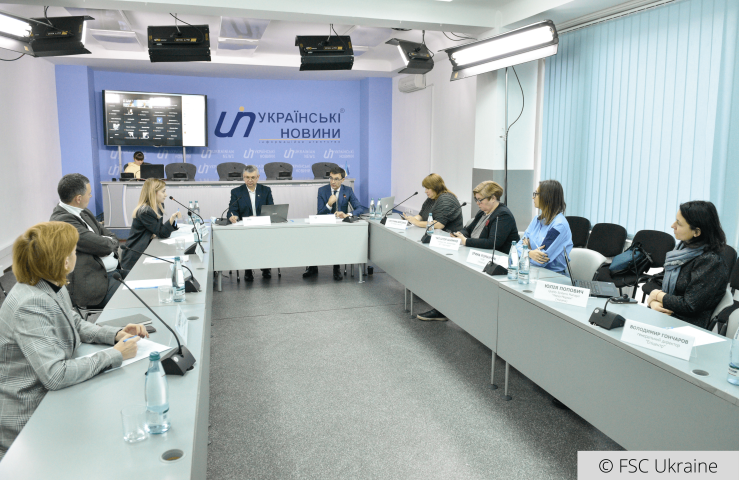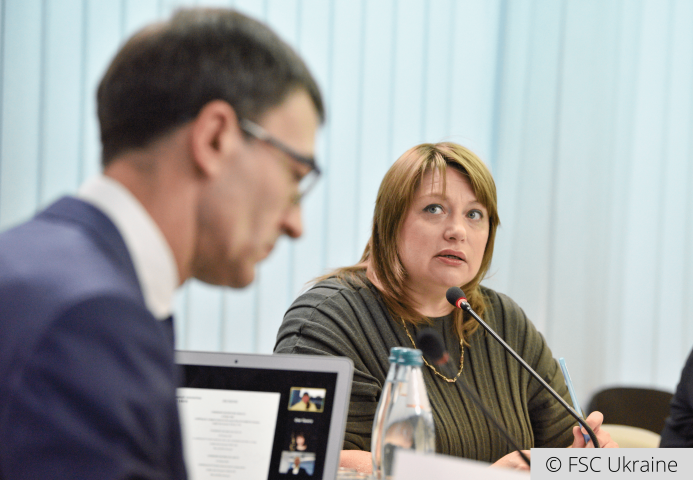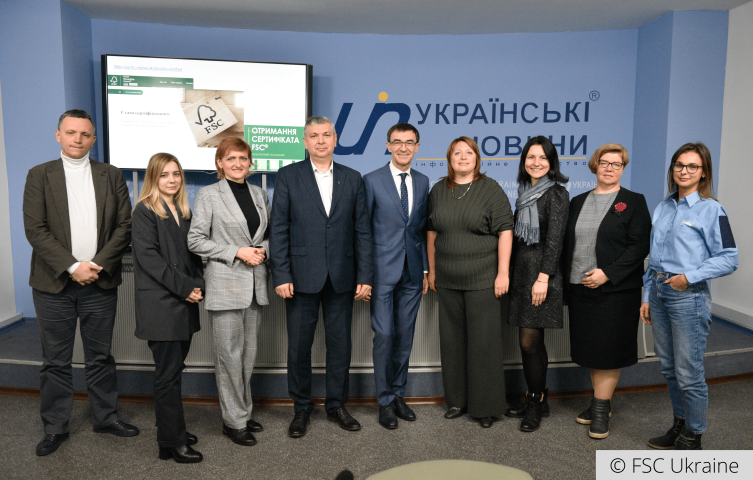Requirements for the environmental characteristics of the subject of procurement and non-price evaluation criteria can now also influence the choice of the tender winner and the price. But, unfortunately, their use in tenders is now an exception rather than a daily practice. That is why the Forest Stewardship Council® (FSC®) in Ukraine initiated a discussion on the need to encourage procurement participants to choose products based on their environmental footprint (from production to disposal).

Kyiv — December 15, the Forest Stewardship Council (FSC) held the fourth "Forest Dialogue" — a round table about developing public and private green procurement in the domestic market. The multilateral dialogue also aimed to disseminate the procurement experience of responsible businesses and encourage bidders to select products made from renewable or recycled resources. All these steps will help Ukraine’s forests become more sustainable and productive, and Ukraine will reach sustainable development goals.
The round table was attended by: Roman Filonenko, Deputy Director of the Department for Waste Management and Environmental Safety of the Ministry of Environmental Protection and Natural Resources; Nataliia Shymko, Deputy Director-General of “Prozorro”; Kateryna Minova, Representative of the Antimonopoly Committee of Ukraine; Iryna Romanchuk, Procurement Manager of Jysk Ukraine; Yuliia Popovych, Quality systems manager of Leroy Merlin Ukraine; Oksana Donska, member of the managing board of Ukrainian Furniture Manufacturers Association, and others.

“Green public and private procurement is an effective way to balance reliability, quality, price, and protect the environment. These are tender offers that require non-price criteria and the value of the life cycle of products or services. This means that products that do not cause harm to the environment have an advantage over cheaper ones. For example, the requirements for furniture for the New Ukrainian School include confirmation of the sustainable origin of wood, recyclability, manufacturer-guaranteed service life, furniture upgradeability, ergonomics, improved environmental and radiation safety according to environmental labeling standards” – said Svitlana Berzina, President of the AUPO “Living Planet.” – "By using non-price criteria that cover all stages of the product life cycle, we can achieve not only short-term economic benefits (more reliable products with extended service life) but also long-term ones, supporting local businesses and human health while preserving ecosystems.”

"Today, development of green procurement should be driven primarily by agents of change in the state. We need ambassadors to promote green policies at all levels of government, whose role will not be limited to the development of legislative initiatives. It is important that when purchasing products, from the President's Office to the United Territorial Communities, environmental characteristics and non-price criteria would take the lead for determining the winners in the tender procedures. This will form a culture of responsible consumption and will set the vector of sustainable development in our country’s society", — said the director of FSC Ukraine Pavlo Kravets
“From our experience of tender procurement of services, the lowest price offer is not always the cheapest option in the end. Therefore, we show by our example the success of procurement with the application of environmental performance requirements", — said Roman Filonenko, Deputy Director of the Department of Waste Management and Environmental Safety of the Ministry of Environmental Protection and Natural Resources of Ukraine. In his opinion, now, it is not necessary to make compliance with environmental criteria mandatory. It is sufficient to have high-quality methodological recommendations for tenderers on the use of environmental requirements for goods or
services and non-price criteria. The companies willing to win the bidding will see for themselves the necessity to comply with the standards of a certification scheme.
Nataliia Shymko, Deputy Director-General of “Prozorro,” noted that tenderers are cautious about the environmental criteria application, as regulators focus on combating price overstatement. Hence, they are suspicious of customers who choose not the cheapest bid. Education regarding green procurement is needed among the employees of the control system, which will enable the customers to purchase more sustainable products without forewarning. Prozorro plans to introduce electronic tender documentation, which will provide an open electronic field for providing environmental characteristics of a procurement subject. This will allow electronic monitoring, i.e., finding out whether the customer applies the requirements for environmental performance and which ones exactly. Today, such an analysis of green procurement is possible to carry out only manually.
The representative of the Antimonopoly Committee of Ukraine, Kateryna Minova, spoke about the active and systematic work of the body on applications of bidders for green procurement. The Law considers each case on Public Procurement, which regulates the use of such criteria.
Today, the transition to a more sustainable activity model is significant for the retail sector. In the coming years, Jysk and Leroy Merlin plan to switch to the sales of furniture and packaging certified according to internationally recognized certification schemes, said Yuliia Popovych and Iryna Romanchuk. Because of these changes, businesses are trying to reduce their impact on the environment and contribute to the greater sustainability of forest ecosystems.
"Exports of furniture products amounted to more than 1 billion dollars, which is 43 % more than last year. Products in respect of which the requirements of the European market confirmed the legality and sustainability of origin comprise 88 % of the total volume", – said a member of the Ukrainian Furniture Manufacturers Association, Oksana Donska. She noted that furniture exporters are the domestic market’s flagships and lead the development in the broad understanding of this term. After all, they supply products that already typically meet environmental criteria to large domestic retail chains. A good stimulus for developing eco-consciousness for small and micro-producers is the association in furniture clusters and cooperation with market operators. After all, retailers require suppliers to have certificates of origin and eco-labeling.

The participants of the round table agreed that the driver for the development of the green procurement system in the country should be:
- raising the general public awareness on green procurement;
- changing consumer preferences by increasing confidence in the compliance of products with environmental criteria and characteristics;
- development and improvement of tools for the exercise of environmental policy in terms of green procurement and its implementation in the system of government and business decisions;
- increasing control over the integrity of labels and declarations of products present on the market.

